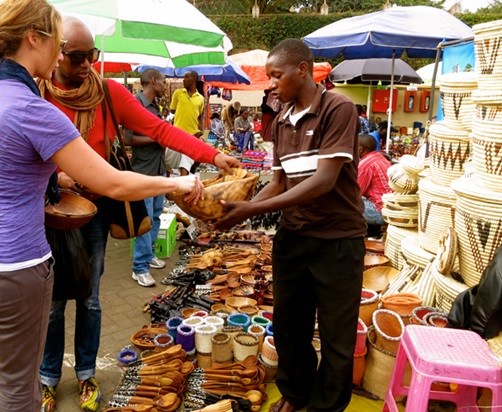The growth of the tourism industry globally, and particularly in Africa, has been overwhelming. The industry is one of the primary drivers of economic and social development in Africa. 60% of the unemployed population in Africa is youth according to the International Labor Organization (ILO), therefore, the employment opportunities, generation of income and investment by the tourism industry have a major role to play in ending unemployment in the continent.
Small and medium enterprises from one sector that have directly or indirectly benefitted from the growth in tourism sector is the artisan business. We can all attest to the fact that Africa has a rich arts heritage. Major museums, galleries, and art curios are spread across every African country, exhibiting carvings (wood, soapstone, gold and silver), folkloric musical instruments, beadwork and paintings among other artworks.
These contribute immensely in showcasing the country’s culture and are also tourist attractions on their own. Art products are in high demand by hotels in a bid to diversify their furnishings and blend the décor with a traditional sensation. It is also commonplace for tourists to purchase a souvenir to share their Safari experiences with friends and family.
True enough, these mementos are also used as gifts for our loved ones and aide memories of the extraordinary experience in Africa, with each telling a different aesthetic story. By selling their art products to visitors, the artisans get a legit source of living that not only help put food on their table but also educate their children.
Crafts industry should capitalize on growth opportunities created by tourism
There is no question, however, that the crafts industry is yet to be fully tapped. According to a market research done by Aid to Artisans (ATA), the region has been largely unable to capitalize on the economic growth opportunities created by tourism.
The research evidently points to prevalent under-utilization in the arts and crafts and souvenirs markets. Some of the products we purchase from arts vendors may have personalized messages and names of the host country, yet not originally made from there. This kind of competition from imported art products has been a major challenge, especially due to the poor quality of local products or too high selling prices.
The demand is no doubt in the rise and so should be the supply from the African market. Therefore, observing the market trends (to provide sustainable prices) and customer preferences may just translate into amplified production and sales of crafts, which will then have a ripple effect in their businesses, their country’s economy and that of the entire continent. Governments too need to invest more in the artisan sector to help reinforce market access for art products.
The crafts industry has undoubtedly profited a lot from the tourism sector. An industry report by Africa’s online hotel booking company, Jovago, places Africa on the travel and tourism global map, with projections of approximately 42.6 million tourists traveling to sub-Saharan Africa by 2017. Such prognoses give hope for better days to come for the African artisan sector, as the two are without a doubt, inextricably linked.








































